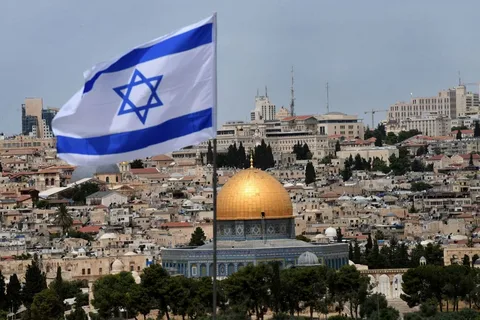The intensifying conflict in Gaza has sparked heated demonstrations across the United States, with pro-Palestinian activists employing increasingly disruptive tactics to challenge American support for Israel. From blocking major transportation arteries like the Golden Gate Bridge to impeding access to airports such as Chicago’s O’Hare, protesters are pushing the boundaries of free speech, prompting debates on the limits of expression.
Protests Against Israel
However, these protests have not been without controversy. In Bakersfield, California, an activist faces felony charges for making threatening remarks to city council members during a discussion on a resolution concerning Gaza. Similarly, at the University of Southern California, the cancellation of the valedictorian’s commencement speech due to pressure from pro-Israel activists has raised concerns about the suppression of free speech.
USC Provost Andrew Guzman defended the decision, citing security concerns amid escalating tensions fueled by social media and the conflict in the Middle East. Nevertheless, the cancellation has stirred criticism and questions regarding the prioritization of safety over freedom of expression.
Moreover, the polarization surrounding the issue has led to confrontations beyond protests. A recent incident at the home of University of California, Berkeley’s law school dean, Erwin Chemerinsky, saw a celebration disrupted by a student advocating for divestment from Israel. The incident underscores the complex intersection of free speech, activism, and personal space.
As tensions rise, there is growing bipartisan frustration with the confrontational tactics employed by protesters. Senator Tom Cotton’s call for individuals to take action against demonstrators reflects a broader sentiment of discontent with disruptive protests.
Amidst these tensions, reports of bias and discrimination against both Muslim and Jewish communities are on the rise, underscoring the broader societal impact of the conflict. With free speech and political divisions at the forefront, the US faces a critical test of its democratic principles and tolerance for dissent.






